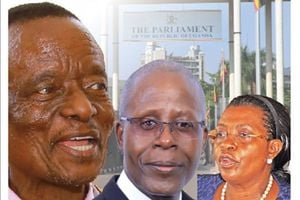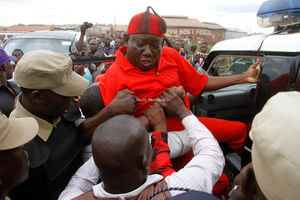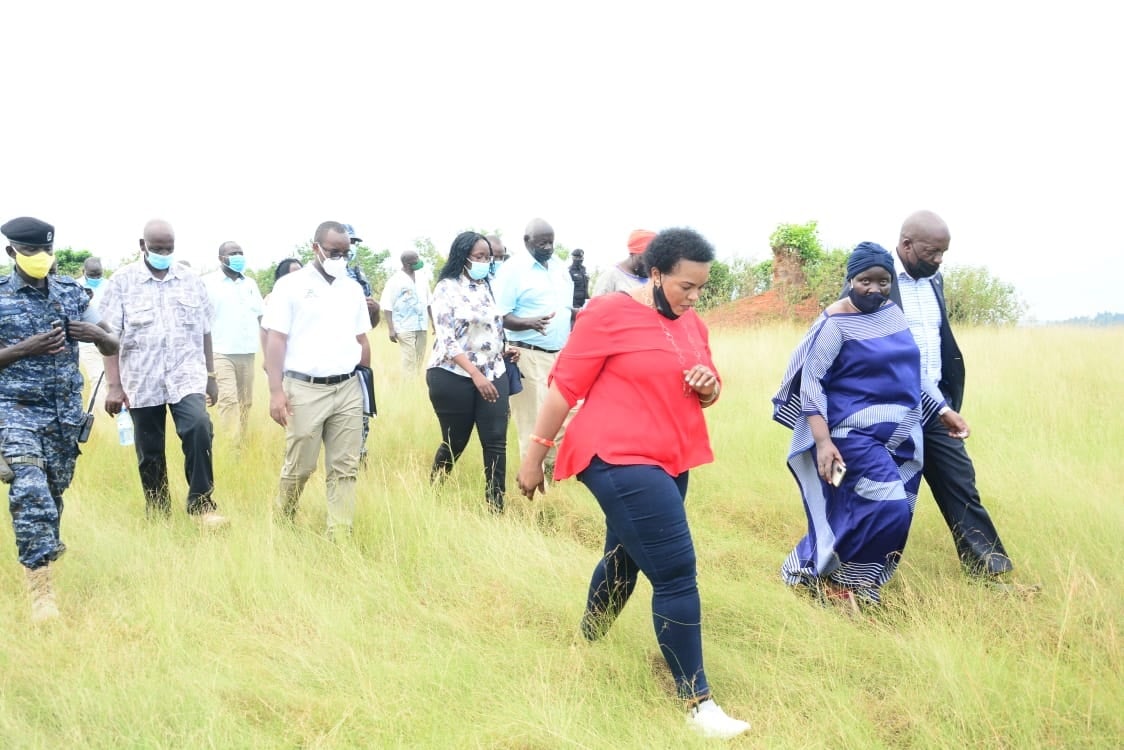
When he was the Leader of the Opposition in Parliament (LoP), Mathias Mpuuga made no secret of how little he thought of the vast majority of lawmakers elected to the House on a National Unity Platform (NUP) party ticket. Most, he severally said, were very raw.
“Some don’t know the procedures to follow in Parliament. They don’t know what to do if they want to bring a Bill. They need a lot of initiation, but some aren’t willing to listen,” Mpuuga said back then.
Among the lawmakers Mpuuga thought were not intellectually fit was Aloysius Mukasa. Yet despite this, NUP gave Mukasa the green light to have a shot at a parliamentary seat.
“What we considered when choosing a candidate was the popularity of that candidate. If that candidate had a minimum of an A- Level certificate and was popular, that’s what mattered. And from the ground testing we did, it looked as if Mukasa was the sole candidate,” said Jeremiah Keeya Mwanje, who was part of NUP’s committee that vetted candidates.
Quiet presence
So Mukasa joined a dozen others in locking horns for the 2021 Lubaga South constituency race. An early pacesetter, his posters were strewn over a constituency that has many slums, including Nateete, Kikubamutwe, Nalukolongo, among others. With bottomless pockets, Mukasa, a businessman, went around the constituency doling out money to women groups, car mechanics and various religious entities. This endeared him to the voters.
Eventually, Mukasa beat Samuel Walter Lubega Mukaaku to the NUP flag. During the NUP vetting process, Mukasa, who hates media scrutiny, was among those who were accused of doling out money to the NUP leadership to secure the ticket.
In addition to this, sources that preferred anonymity said Mukasa was given the ticket because he had bankrolled NUP and its foster parent People Power. Mr Mukasa is not only a close friend to NUP president Robert Kyagulanyi Ssentamu, alias Bobi Wine and his brother Fred Nyanzi, but is said to be the boyfriend of their sister, Catherine Namuleme.
With such backing, Mukasa easily shrugged off his opponents by polling 49,501 votes against 12,893 garnered by the Democratic Party’s Eugenia Nassolo. Charles Kenneth Male, standing on an NRM ticket, mustered only 5,069 votes.
Three years on from that landslide win, Mukasa’s performance in the House has been wanting. Empirical evidence shows that his major submission in the House came in May 2022 when he voiced concern that Kampala—with a population of approximately 4.5 million—had only 16 public toilets.
“You can’t tell if at all he has any committee he sits on. Even when controversial issues come up, you never hear his voice,” a NUP insider, who preferred anonymity, said.
Colourful backstory
Rubaga South has an interesting history when it comes to representation. It was not until the 2006 General Election that a presidential poll was carried out separately from a parliamentary poll, with the latter coming first. In 1996, when Paul Kawanga Ssemogerere—the DP flag bearer, who had formed an alliance of convenience with the Uganda Peoples Congress (UPC)—lost his second presidential bid to President Museveni, citing electoral fraud, both Opposition parties ordered their members to boycott the subsequent parliamentary elections. Some members of both parties adhered to the boycott, while others didn’t, as expected.
Damiano Lubega, who had represented Rubaga South in the Constituent Assembly (CA), which midwifed the current Constitution, is one of the DP members who obeyed the orders and didn’t stand. Since nature abhors vacuum, Lubega’s decision not to stand played right into the hands of John Ken Lukyamuzi, an environmentalist who would soon unbridle his brand of politics in which he fused strong debating skills with comedy. This was despite belonging to one of the smallest parties, the Conservative Party (CP).
Mr Lukyamuzi represented Rubaga South from 1996 until 2005 when Justice Faith Mwondah, the then government ombudsman, controversially threw him out of the House before the completion of his second term. He was also blocked from contesting in the 2006 elections, with Justice Mwondah, who is now a Supreme Court judge, buttressing her decision on the fact that Lukyamuzi had refused to declare his wealth as stipulated by the Leadership Code Act, 2002. This sparked off a legal skirmish that saw Lukyamuzi challenge Justice Mwondah’s decision in the Constitutional Court where he lost but later won when he took the battle to the Supreme Court, the highest in the land.
The victory in Uganda’s apex court came five years after Lukyamuzi’s ouster from the House. Justice Jotham Tumwesigye led six other Supreme Court judges in a ruling that he was unconstitutionally removed from his seat and ordered that Lukyamuzi be paid all the emoluments he should have earned as a lawmaker from the date he was “unlawfully” removed from his seat until the expiry of his tenure in the 7th Parliament as prescribed by Articles 77(3), 96 and 289 of the Constitution.
“The Clerk to Parliament should calculate the amount payable based on the rules of Parliament which were in force by the time he was removed from the 7th Parliament. It is ordered that the amount so established be lodged in the registry and that amount becomes the decree of the Court,” Justice Tumwesigye, who has since retired, ruled.
From Lukyamuzi to Lubwama
The years he battled the ombudsman in courts didn’t in any way imperil Lukyamuzi’s control over the constituency that has eight parishes and 72 villages. In the 2006 elections, Lukyamuzi dispatched Suzan Nampijja, his daughter, who at the time was aged 31, touting her as a capable substitute. Nampijja indeed won the election but once Lukyamuzi secured his court victory, his daughter, despite earlier hesitation, didn’t seek another term, giving way for his father to contest again on the CP ticket. Lukyamuzi asserted his supremacy on Rubaga South politics by cruising to victory.
It was Paul Kato Lubwama—the actor-turned- politician who has since died—who in 2016 wrestled the constituency from Lukyamuzi’s grip. To win the election, Lubwama, who was an Independent, unveiled his brand of politics which is a concoction of drama, cynicism and bluntness. He bluntly told voters not to expect much from him since his only aim of going to the House was to pocket the juicy salary and other privileges that come along with being a lawmaker. Lubwama’s “munonde nange ngende ndyeko” catchword during campaigns loosely translates to: “Vote me such that I can also eat.”
Fascinatingly, votes were swayed by Lubwama’s forthrightness so much so that they chose him over Lukyamuzi. Once lawmakers were sworn for this term, one of the sticking issues was which kind of cars should the taxpayer pay for the occupants of the House, who had increased in numbers.
Also read: pp04
‘I didn’t come here to suffer’
To break the impasse, Ibrahim Ssemujju Nganda, the Kira Municipality lawmaker, proposed that MPs be given a loan of Shs200m. Lubwama derided this proposal, saying he preferred that taxpayers directly buy the lawmakers' cars worth the same amount. When Parliament came under fire for spending extravagantly amid the country’s financial woes, Lubwama’s response was swift: “I didn’t come here to suffer.”
He added: “I spoke about a reality. You cannot have a Member of Parliament driving a car of Shs20m; respect MPs. The problem with Ugandans [is], they don’t want to hear the truth but they [cars for MPs] are provided for in the [government’s standing policy]. Don’t blame me, you blame the framers of the Constitution who allocated emoluments to MPs.”
In the aftermath of such callousness, DP tried but failed to recapture this seat. During the 2021 General Election, the party hinged its hopes on Nassolo, an entrepreneur who had enlisted support from the influential Catholic Church and Buganda Kingdom. Both Rubaga Cathedral, the headquarters of the Catholic Church, and the Kabaka’s main palace are found in Rubaga South. So DP, on purely sentimental grounds, considers Rubaga South its spiritual home. It is also the home of Benedicto Kiwanuka, one of the founding members of the party and Uganda’s first prime minister. Ditto Ssemogerere.
Riding on the NUP wave, Mukasa engineered a dominant win that saw the cradle of DP turn from green to red in 2021. Heading into the 2026 elections, though, Mukasa finds himself in a bit of a quandary. Nassolo has since decamped to NUP. While it remains to be seen whether she will challenge the incumbent in the NUP primary, the general consensus is that Mukasa is in a vulnerable position.
“For now, I’m concentrating on my duties within the party (NUP). I have been given a role to lead in Rubaga South and that’s what I’m doing currently,” Nassolo said.




